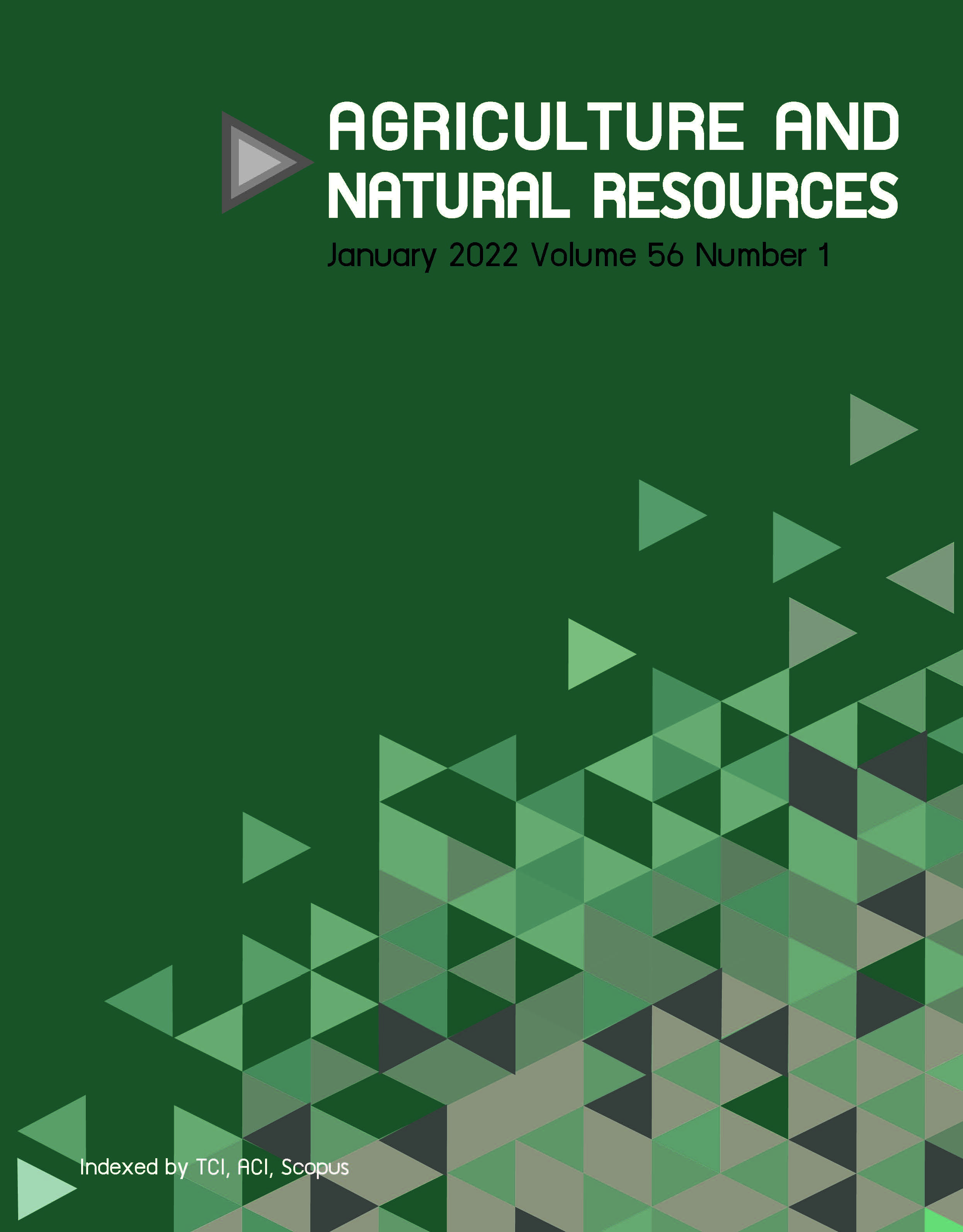Effect of seed treatment with coelomic fluid secreted by Perionyx excavatus on corn seedling and control of Aspergillus flavus
Keywords:
Antifungal, Earthworm, Plant hormone regulator, Seed vigorAbstract
Importance of the work: Aspergillus flavus contamination could lower corn seed quality and aflatoxin production. Depending on the concentration, certain chemicals used for fungal control are harmful to the environment; consequently, natural products are increasingly used as alternatives. Coelomic fluid secreted by the blue worm, Perionyx excavatus, has been found to affect plant growth and to inhibit growth of Aspergillus species.
Objectives: This work investigated the appropriate coelomic fluid concentration to promote corn seedling and inhibit the growth of A. flavus.
Materials & Methods: Corn seeds were treated with 0%, 1%, 2.5%, 5%, 10%, 15%, 20% or 30% coelomic fluid solution.
Results: The seeds treated with coelomic fluid solutions had higher shoot lengths (p < 0.01) than the control but there were no significant differences between the concentrations. Mean (± SD) shoot lengths of seeds treated with 0% and 1% coelomic fluid solution were 19.07 ± 0.89 cm and 23.14 ± 1.32 cm, respectively. In the second experiment, corn seeds were contaminated with A. flavus and subsequently soaked in 100% coelomic fluid or fungicide solution and compared with non-contaminated seeds and non-treated seeds. The results indicated that the coelomic fluid had the greatest inhibition on the growth of A. flavus. The level of fungal infection of coelomic fluid solution treatment was 0%, while the mean (± SD) infection levels for the fungicide treatment and non-treated seed were 1.67 ± 1.92% and 27.5 ± 11.34%, respectively.
Main finding: This study revealed that coelomic fluid secreted by P. excavatus significantly enhanced seedling growth and inhibited the growth of A. flavus.
Downloads
Published
How to Cite
Issue
Section
License
Copyright (c) 2022 Kasetsart Universityonline 2452-316X print 2468-1458/Copyright © 2022. This is an open access article under the CC BY-NC-ND license (http://creativecommons.org/licenses/by-nc-nd/4.0/),
production and hosting by Kasetsart University of Research and Development Institute on behalf of Kasetsart University.







